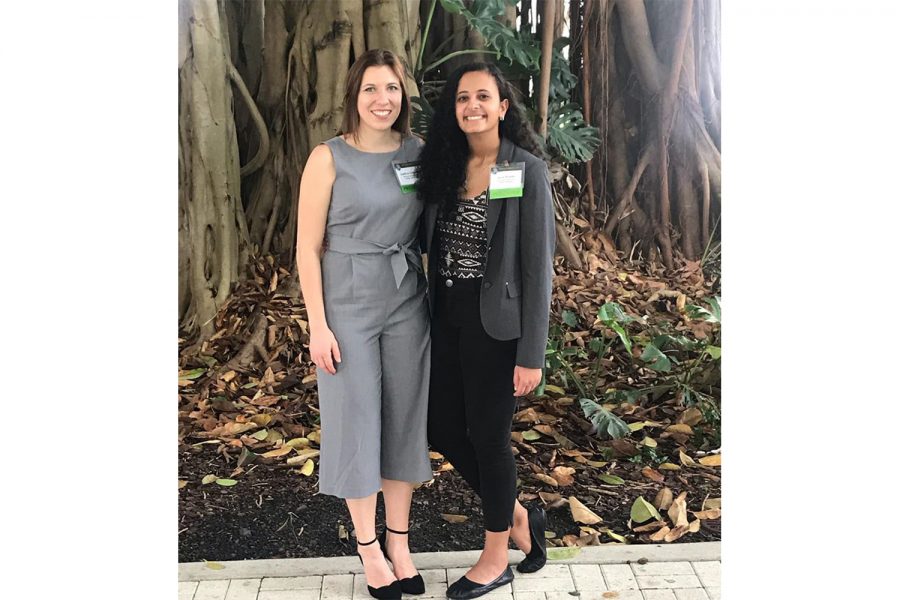University of Iowa med student-run mobile clinic offers free tele-medicine amid COVID-19 pandemic
The University of Iowa Mobile Clinic, which provides free basic health care services, has transitioned to a tele-medicine program due to restrictions stemming from COVID-19 mitigation.
April 6, 2020
The University of Iowa Mobile Clinic has transitioned from its traditional, in-person medical services to telemedicine appointments amid social-distancing restrictions to prevent the spread of the novel coronavirus.
The student-run nonprofit offers free basic health care to primarily uninsured or underinsured Iowa City residents in need of professional health services, seeking to promote equity by providing more equal access to care.
Third-year medical student Joyce Wahba, executive coordinator for the Mobile Clinic, said the organization, which normally operates out of nine locations, shifted to a remote format after the UI suspended all in-person meetings of student organizations this semester.
“Our main goal is to have people be aware of our services,” Wahba said. “For example, if people don’t have insurance, we want them to know that we are here for them and can help with chronic and acute medical issues. We also offer our services in Spanish, French, and Arabic in order to take down language barriers.”
Wahba said that even though the clinic faces more limitations on the services it provides over the phone, it is still offering many of the same important services it did with in-person clinics.
“For tele-mobile clinics, we are refilling medications for chronic conditions like diabetes and high blood pressure, talking to people about COVID symptoms, and [addressing] mental health kind of surrounded by COVID, but also just general anxiety and depression,” Wahba said. “But we’ve also been able to refer a couple people for social work as well to try and get them signed up for insurance.”
When the UI made its initial announcement on March 11 that in-person classes would be suspended until at least April 3, the UI Mobile Clinic was not originally planning for a complete move to telemedicine. The UI has since extended the virtual-learning format for the remainder of the semester.
RELATED: Carver College of Medicine Hawkeyes provide services for health care workers
“We set up a program so patients could call in if they were receiving medications from us and needed a refill,” said UI second-year medical student Andrea Arthofer, the Mobile Clinic operations coordinator. “Once it became really clear that this was going to be longer than a one-month shutdown, Joyce texted me and said we ‘need to do more’ because just refilling prescriptions isn’t enough anymore.”
The UI Mobile Clinic has a long list of medical services on its website that are still available for patients. Many volunteers, however, still face challenges from the restrictions brought about by COVID-19.
“We definitely are limited in what we are able to do,” said UI third-year medical student Hannah Pope, a clinic coordinator. “We’re not able to check peoples’ blood pressure, we’re not able to check peoples’ A1C for diabetes, so kind of some of the bread and butter things that we normally try to help.”
Wahba and Arthofer said one of the biggest challenges in the clinic’s switch to telemedicine has been marketing.
“What we are trying to do better at is just getting the word out so that we can reach these people who need us,” Wahba said. “We’ve been trying to branch out and think of different ways that we’d be able to advertise.”
Despite the switch to telemedicine, Pope said undergraduate and medical students are still benefiting from their volunteer efforts at the Mobile Clinic, and the hands-on experience it offers.
“It’s getting more access to providing patient care and just seeing how a clinic flows,” Pope said. “I still think it is super valuable because we are still able to have that patient interaction and we’re still able to practice our note writing or our presentation skills.”
Even with the limits on what services the clinic can provide because of coronavirus, Pope said the little things remain very important.
“The Iowa Mobile Clinic has been really helpful for the Iowa City community,” Pope said. “The executive board really tries to find areas where there is a need, and I know that they are targeting specific communities within Iowa that they think they can help.”



